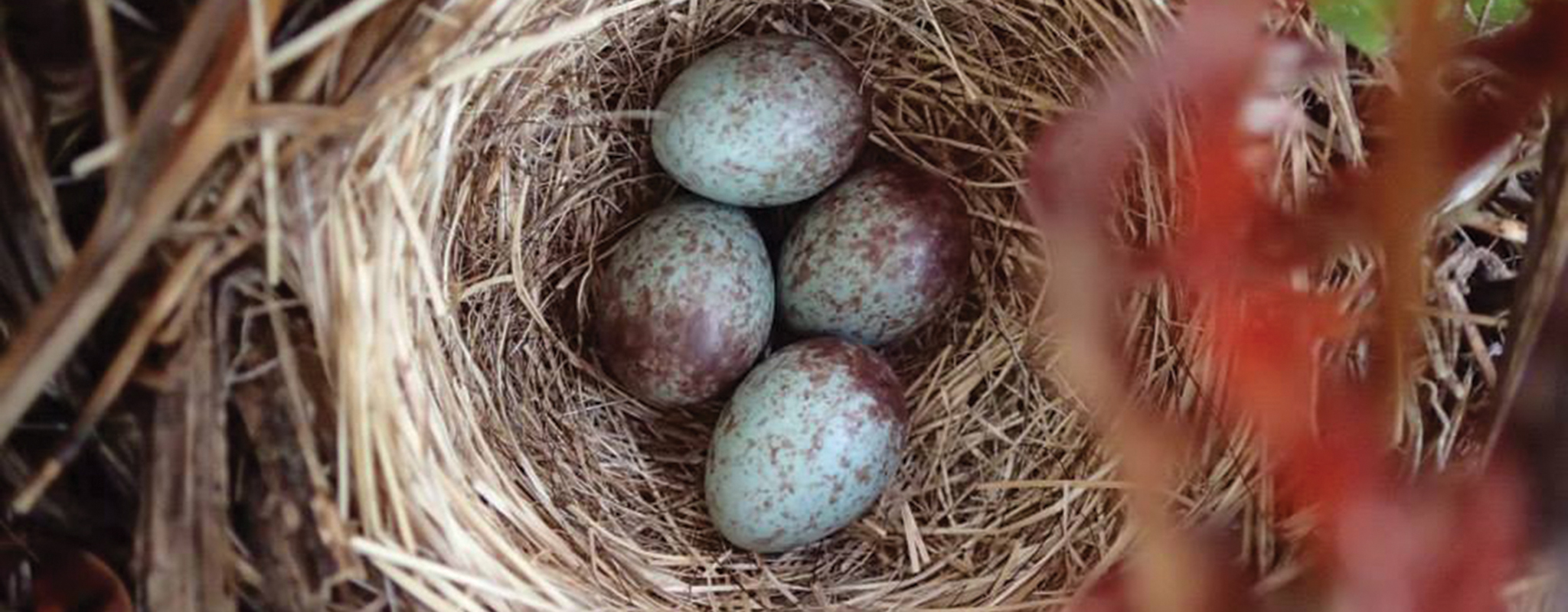Biennial FES

Intensive forest management study tackles herbicide use
The use of herbicides in forests is a controversial topic in Oregon, throughout the country and the world, but that didn't deter Oregon State researchers.
Forest Ecosystems + Society 2017-2018
The Department of Forest Ecosystems and Society at Oregon State is world renowned for its education, outreach and research in the areas of forest science, natural resources, tourism and recreation. Students and faculty study and work in Corvallis, at OSU-Cascades in Bend and around the state, nation and world. Graduates go on to work outside in forests and national parks, on state lands, in important government agencies and non-governmental organizations. The department's research impacts policy and land management decisions worldwide, and its outreach programs benefit communities throughout Oregon.
EDUCATION
• Janean Creighton assumed the role as director for the large and growing master of natural resources program. Recent improvements geared toward enhancing student success include creating a comprehensive graduate student handbook, reviewing and refining processes for assessing student learning outcomes, appointing a new curriculum committee and conducting follow-up interviews with all graduates.
• FES faculty and instructors guide students on individual, projects outside the classroom that provide hands-on experience with research or land management. Students in the tourism, recreation and adventure leadership (TRAL) degree complete six months of work experience to gain skills that will help them in the future and see how their coursework applies to potential careers. The natural resources degree was revised to be more student-friendly by allowing students to use study abroad and internship credits in place of traditional classroom instruction.
• FY 2018 marked the first-year students could enroll in the TRAL program, a promising program that offers two options in Corvallis (outdoor recreation management and sustainable tourism management) and two options at OSU-Cascades (adventure leadership education and nature, eco and adventure tourism). To meet demand, OSU-Cascades hired a full-time instructor to increase the capacity to offer core skills courses.
• The FES on-campus graduate program received positive feedback from the Oregon State Graduate School as it completed its five-year review. To address suggested areas of improvement, FES department coffees involved speakers and discussion around learning-related topics, including flipped classrooms, mentoring graduate students and dealing with bias incidents in the classroom.
• To improve student success outcomes, the natural resources program initiated a complete review of all courses listed in the natural resources core, breadth, and specialty options. The program also introduced a new integrated conservation analysis option and developed new approaches to assessment of student learning outcomes. Finally, the program created a faculty curriculum committee to supplement the existing program committee.
RESEARCH
• To address the need for standardized, landscape-scale data that can enhance Earth systems models, FES researchers made a long-term dataset (1999-2014) of plant and plot measurements for 35 tree and shrub species at 239 field sites in Oregon and California available to the public.
• A study led by Distinguished Professor Steve Strauss, demonstrated that genetic engineering can prevent new seedlings from establishing. This study was the largest field-based study of genetically-modified trees ever conducted. This result could ease societal concerns over gene flow –the spread of genetically engineered or exotic and invasive trees or their reproductive cells beyond the boundaries of plantations.
• Predicting how plant species will respond to climate change –including the possibility of migration – is a major scientific challenge. FES researchers and colleagues developed a model that incorporates geographic and physiological variables related to tree reproduction and movement for 15 tree species in the Pacific Northwest. This work highlighted how geographical barriers to movement, such as landscape fragmentation, will substantially impede the natural migration of species and that scientists should only seriously consider assumptions about where species may migrate based on climate variables.
• Due to uncertainty in regulations, financial instability and pressures from urbanization, FES research on family forests in Oregon and Washington showed why forest owners are not successful in transferring forests to the next generation within families.
• Assistant Professor Ian Munanura’s research on Rwanda’s tourism revenue sharing policy at Volcanoes National Park revealed several structural and policy barriers are preventing conservation and livelihood benefits. As poor communities living near protected areas are affected by ecotourism in various ways, his work explores how local communities can be effectively engaged in ecotourism and develop more sustainable livelihoods.
OUTREACH
• The HJ Andrews Experimental Forest and Long-Term Ecological Research Program celebrated its 70th anniversary in 2018, and supports research on forests, streams, and watersheds. The forest connects more than 160 researchers and students across multiple disciplines. The program is a partnership between three organizations: the college, USFS Pacific Northwest Research Station and USFS Willamette National Forest. Over the last two years, the program hosted outreach events that engaged more than 3,200 people in classes, tours, and conferences. More than 1,200 undergraduate and graduate students from across Oregon used the HJ Andrews Forest field station for research and course work. In K-12 outreach, the program hosted more than 600students in experiential learning experiences in the forest and engaged more than 80 K-12 educators in workshops and trainings.
• FES faculty are active in the International Union of Forest Research Organizations and collaborate with partners around the world. Several serve in advisory capacities to foreign governments or nongovernmental organizations.